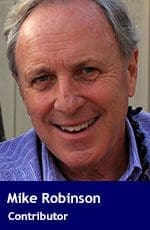 There was only one other car at the Earls Cove ferry terminal last week as I headed home to Powell River. It was a brand new Jeep with a white-and-red Alberta licence plate grinning from the rear bumper.
There was only one other car at the Earls Cove ferry terminal last week as I headed home to Powell River. It was a brand new Jeep with a white-and-red Alberta licence plate grinning from the rear bumper.
I say grinning because on my part of the Sunshine Coast, you rarely see an old beater with Alberta plates. We’re all pretty used to Albertan visitors parading by in top-of-the-line trucks and SUVs. Many are boys and girls from here who left for ‘away,’ to find work in the 1980s and ’90s.
Exactly 40 years ago that was us. Newly married, we drove our red and rusted Datsun 510 from Vancouver to Calgary. I’d just finished law school at the University of British Columbia and my wife was heading to architecture school at the University of Calgary.
I had no job and we knew no Albertans. The oilpatch was booming in 1978 and we decided that Calgary was more promising than staying in Vancouver – basically my family’s nest since 1910.
Our departure puzzled my parents. Some friends were disbelieving. “What the hell for, Mike?” was a popular refrain.
Just because. We knew all there was for 20-somethings to know about the coast. Calgary was new.
When we got there with less than a thousand bucks in our joint account, we quickly found student housing and new friends. Everyone was from somewhere else. Nobody had parents or grandparents in town. It really was the wild west in a social sense; you were building everything from the ground up. But it was fun.
I found a job in the oilpatch after failing as a writer for four months. My New Yorker rejection slips were replaced by real paycheques, and work creating environmental and social impact assessments for Petro-Canada, the state oil company.
In my first week, I was flown to St. John’s, Nfld., to assess the potential purchase of the Come By Chance oil refinery. What the hell did I know about oil refineries? Nothing. But I was a quick study, and my Petro-Canada bosses appreciated my work ethic and my knack for small-town diplomacy.
Nobody in Calgary asked me what my parents did or where I went to high school. Instead, they asked me about my work and what my long-term plans were. Calgary was the anti-Vancouver. It was totally refreshing and a clean start.
And then 30 years zoomed by. My wife became an architect, a practice partner and a mother. We had wonderful kids. We built an Alberta-based fictive family, as all of our relatives stayed in B.C. We came back to the coast for summer vacations and Christmases, but we became Calgarians.
In this capacity we were Albertan diplomats, explaining the oilpatch, and interpreting prairie sensibilities to friends and relatives who had stayed home. Somewhat unbelievably, my mother told me the story of her dentist, who thought I’d left Vancouver to pump gas in a Calgary gas station.
The overall B.C. level of Alberta comprehension was not impressive. If pushed, I’d say it was smug, complacent and ignorant to boot. Cowboy boot!
To be fair, things got more complicated as the years rolled by. Climate change, largely induced by internal combustion of hydrocarbons, became a reality. Oil prices fluctuated regularly – and now are on the skids.
A good pal of mine, a retired multinational oil company chief financial officer, hit the nail on the head: “You know, bright young people just out of school don’t want to work in our sector anymore. It’s not politically correct.”
Now, about 40 percent of downtown Calgary leasehold space is vacant. Oilpatch kids have become economic refugees. Kinder Morgan’s newly-approved pipeline (by the National Energy Board, at least) to the coast is facing strong B.C.-based opposition.
Alberta Premier Rachel Notley has countered with an embargo on B.C. wine at the Alberta border.
Tempers flared at the town hall meeting that Prime Minister Justin Trudeau held in Nanaimo recently, resulting in police removal of pipeline protesters.
How do we fix this mess?
For starters, I got out of my car and welcomed the young man at the ferry terminal to Powell River.
“I can’t wait to start my new job here on Monday!” he beamed. He turned out to be a born Calgarian, like my son and daughter.
“I’m sure you’ll do well with a Calgary work ethic and an open prairie mind,” I said. ‘Let me buy you a coffee.”
Next week: Part 2 examines how a sense of common purpose is possible, but it will require compromise.
Troy Media columnist Mike Robinson has been CEO of three Canadian NGOs: the Arctic Institute of North America, the Glenbow Museum and the Bill Reid Gallery.
The views, opinions and positions expressed by columnists and contributors are the author’s alone. They do not inherently or expressly reflect the views, opinions and/or positions of our publication.



Dear Editor:
It’s troubling to watch as a growing number of Sask Party MLAs resign their seats, triggering costly by-elections that will total more than $2 million.
These MLAs are the people responsible for the slash and burn 2017 provincial budget that cut funding for schools, special needs kids, and seniors; eliminated the Hearing Aid Plan; shut down the provincial bus system; hiked the PST, and added it to children’s clothes and snack foods. The untimely departures include the top architects of the budget, former Premier Brad Wall and former Finance Minister Kevin Doherty.
It’s a messy legacy, and it’s easy to see why it would be tempting to bail out, but, really, don’t citizens have a right to expect more from our elected leaders?
To date, Sask Party MLAs Jennifer Campeau, Brad Wall, Bill Boyd, and Kevin Doherty have resigned, with Corey Tochor about to leave and Warren Steinley poised to jump ship.
Abandoning your post to take a lucrative position in the corporate world, as Campeau and Doherty have done, or to play the political game at another level, as Tochor and Steinley are doing, does not justify the broken commitment to voters or the considerable cost to taxpayers.
To put this into perspective – with a price tag of about $400,000 each, two by-elections cost about the same amount the 2017 budget cut when it eliminated a $20 per month travel allowance for the disabled and unemployed. Even avoiding just one election would have saved roughly enough to reverse the severe cuts to the Meewasin Valley Authority, established to preserve the fragile eco-system of the South Saskatchewan River Valley.
Having a position of power and privilege should not entitle you to put personal interests ahead of the people you were elected to serve. It’s difficult to see these mid-term resignations as anything but opportunistic and unethical. MLAs should be held to account, even if they are a former premier and former minister of finance.
Sid Wonitowy
I’d say a good place to start, Mike, would be for BC to start obeying the rule of law, and the constitution.
Dana Wilson